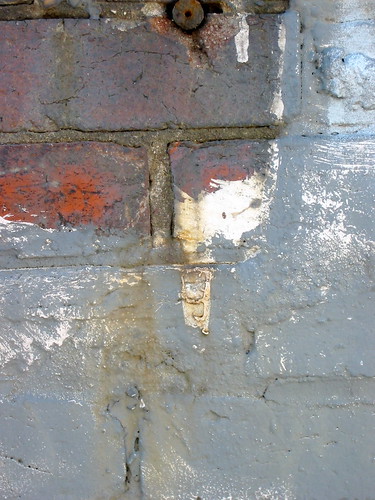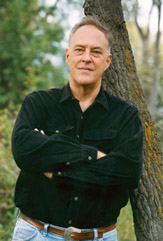
Pipe and Brick
Rummaging around looking for ammo (in the form of the unfound—and probably less foundational than touted—“I HATE SPEECH” This) yesterday, I uncover’d two issues of Ray DiPalma’s Doones—Vol. 1 / No. 3 (1970) and Vol. 1 / No. 4 (1971) for you with checklists. “Editor: Raymond DiPalma” in Bowling Green, Ohio. “Subscriptions to DOONES are $3.50 for 4 issues. Single copies $1.00.” To the half-train’d printer’s eye, IBM Selectric’ly typed up on stencil masters, and run off on legal-sized sheets, fold’d and trimmed, a magazine of roughly seven by eight plus, near-square and comfy. Covers: black on white cardstock, one a pen and ink’d typewriter, unsigned, one a schematic detail of a Paris Métro map (“Doones” listed as the final stop after Port-Royal) by Stephen Shrader.
Why pounce so eagerly on Doones? Easy. Ron Silliman persists in writing a short, stilted history of post-New American Poetry writing in the U. S. in terms of two warring camps. If he admits to anything like a common ground between the two blast’d categories—call ’em Crips and Bloods, call ’em Sharks and Jets, call ’em Hoydens and Louts, just don’t call ’em the asinine monickers the Silliman (in Alexander Haig mask) proposes: we’ve known since Orwell (at least) how the terms of the argument determine the argument and he who names things’s won half a battle, that of the derisory term—. So: if Silliman grutchingly complies with the observation that, in the late ’sixties, Henry Rago made of Poetry, briefly, a place welcome to skunks of all stripes, if he makes it an exception (to “prove the rule”—he’s a veteran of that dodge), what Doones is for is precisely to urge a reconsidering, to posit another story outside the reductivist yarn of the Silliman, one where the plains of Parnassus are cover’d not by two armies, more a mostly affable conglomerate of (mostly) solitary campers in a wild variety of tents. Yugh.
Look, though, at the line-up in Doones: 1970—Ron Loewinsohn, James Welch, William Hathaway, David Rosenberg, Jarold Ramsey, Colette Inez, John Tagliabue, Joe Cardarelli, Robert Kelly, William Stafford, David Hilton, Stuart Peterfreund, James Tate and Bill Knott, David Ignatow, Greg Kuzma, Theodore Enslin, Rolla Rieder, Howard McCord, Ian Self, Tomas Tranströmer (translated by Robert Bly) and 1971—Tom Raworth, Claude Royet-Journoud (translated by Keith Waldrop), Robert Slater, Stephen Shrader, Frederick Eckman, Merrill Gilfillan, Nicolas Born (translated by Eric Torgersen), Jacques Dupin (translated by Paul Auster), John Unterecker, Larry Fagin, Peter Schjeldahl, Rosmarie Waldrop, Howard McCord, Pentti Saarikoski (translated by Anselm Hollo), James Bertolino, Ken McCullough, David Ball, Eric Torgersen, Keith Waldrop, David Adams, Simon Schuchat, Michael Lally, and Russell Edson. The line-up is not an isolated case. The sense of oppositional camps (with its dullard-hounds of divisiveness) emerged, or re-emerged (following the die-down of the original Allen / Hall &c. anthology wars), at the late-’seventies prodding of the Language boys, so don’t let’s take it for something scriptural and final at the persistent badgering of an insecurity.
Out of Doones, one (perhaps) pertinent quotable, a poem by perennial fave Merrill Gilfillan:
The Art of the Manifesto
The first time you see one running across the water you simply stand and gawp. It makes you think of an outboard roadrunner from the arid Southwest walking on water. Then you recognize it as a Purple Gallinule, cousin of the coot and the English moorhen, and you know it’s stepping on lily pads most of the time, but.
The next time you feel one roaming across the water and you stand and talk. It makes you think of an outboard roadrunner from the arid Southwest waltzing on water. Then you recognize it as a perfect yellow mule, cousin of the goat in the English morning, and what a morning, stepping on lily pads most of the time. Your butt.
VIVA LA CAUSA.

Ray DiPalma
